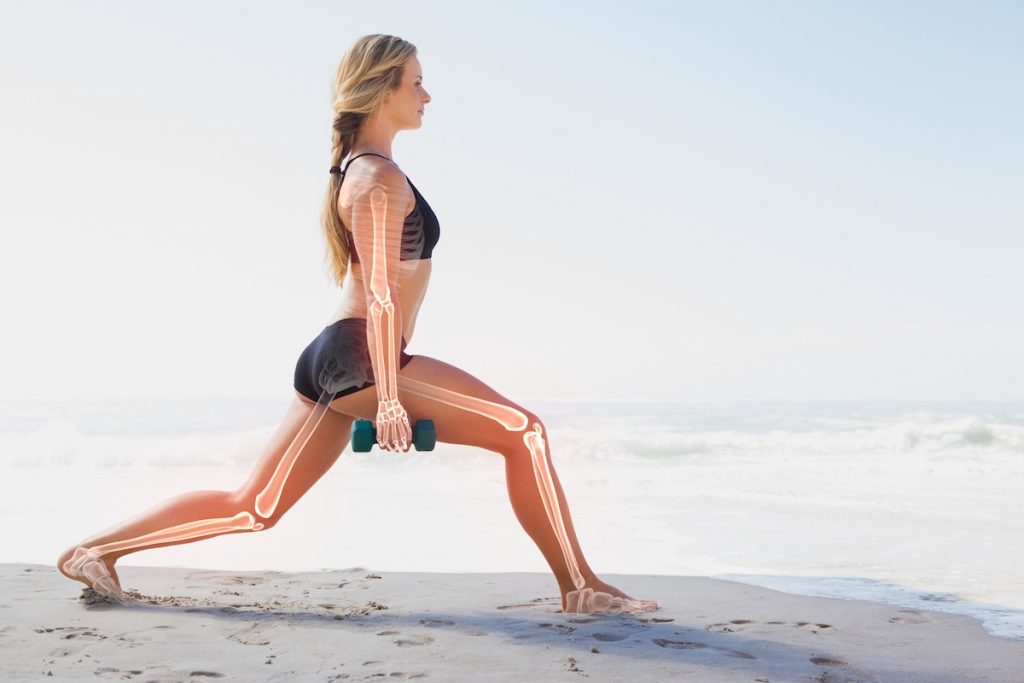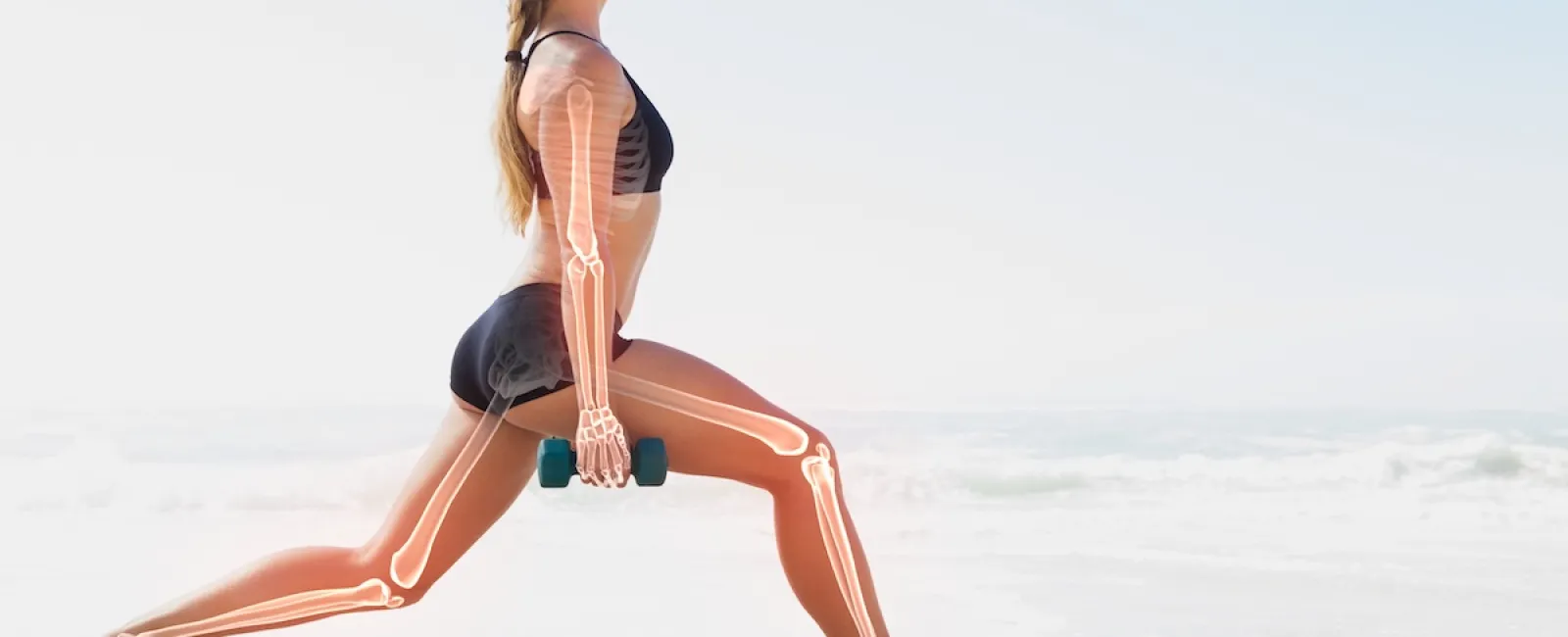
When we focus on staying healthy, sometimes we forget to look after something crucial: our bones. If your bone health is poor due to issues like bone loss, then you are more vulnerable to injuries. Bone loss occurs gradually over the years as the holes and spaces in the bone grow larger, resulting in decreased density and mass. This deterioration usually starts between the ages of 30 and 35, however, here are seven lifestyle tips you can implement now to promote good bone health.
1. Stay Active
While you may be inclined to think physical activity puts your bones at risk for injury, the truth is that staying active is essential to good bone health. Aim to be active for at least 30 minutes a day, five days a week (or 150 minutes each week). Be sure to include a mix of weight-bearing exercise, resistance activities, and stretching exercises.
2. Eat Calcium-Rich Foods
Calcium deficiency is proven to diminish bone density, contribute to early bone loss, and increase one’s risk of fractures. Make sure you are consuming the recommended amount of calcium through nutrient-dense sources like milk, cheese, and yogurt. There are also many non-dairy sources including leafy greens, seafood, or fortified alternatives like Lactaid, soy, almond, or rice milk.
3. Add Vitamin D to Your Diet
Vitamin D helps you absorb calcium in foods. Fortunately, it can be food not only through the foods you eat but also through adequate sunlight and supplements. Even just 8-15 minutes of exposure to sunlight is enough to produce an adequate amount of vitamin D for most individuals. If you’ll be in sunlight any longer than that, don’t forget to apply a broad-spectrum sunscreen.
4. Don’t Forget Other Nutrients
Calcium and vitamin D are certainly important to bone health, but it’s important to eat a balanced diet to ensure you are getting enough of the other essential vitamins and nutrients. Protein, omega-3 fatty acids, vitamin K, magnesium, and zinc are all also important for bone health.
5. Cut Down on Caffeine
Overconsumption of caffeine is widely known to contribute to difficulty sleeping, nervousness, and stomach irritation, but did you know it can also decrease the amount of calcium you absorb? Adults should consume no more than 400mg of caffeine per day, which is roughly 2-3 cups of coffee, but keep in mind many foods and other beverages also contain caffeine.
6. Break Bad Habits
It’s no secret that excessive alcohol consumption and smoking have many adverse effects on your health. Both also contribute to bone loss and increase the risk of bone fractures. If you drink, do so in moderation, but you should quit smoking and tobacco use entirely.
7. Consult Your Doctor
When it comes to your health, prevention and early detection are key. Talk to your doctor about any concerns you may have about your bone health or risk factors for osteoporosis. He or she may recommend a bone density test to evaluate your bone density and determine your rate of bone loss. Your doctor can also offer guidance on how to protect your bones and joints.
Schedule a Consultation
The team at South Shore Orthopedics is dedicated to helping our patients lead active lives. Our board-certified physicians have experience in a number of orthopedic specialties. If you have concerns about your bone health or an orthopedic injury, call our office at (781) 337-5555 to make an appointment
